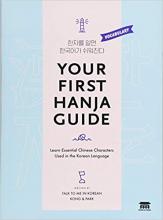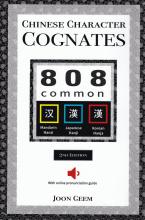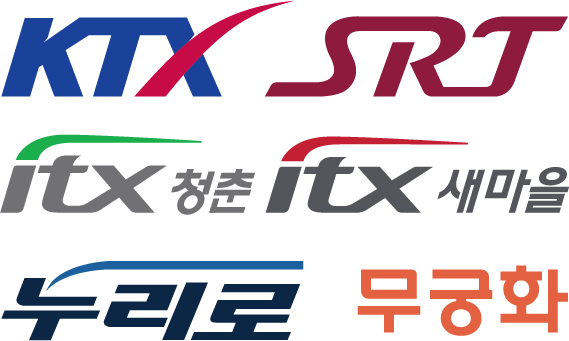Book Review - Your First Hanja Guide

Your First Hanja Guide is a 한자 (hanjja, or Chinese characters used in the Korean language) reference book co-written by the staff at Talk to Me in Korean (TTMIK). This book is one of their few books aimed both at their intermediate and advanced learners of Korean and is meant to be an introduction to common Korean words of Chinese origin used in everyday language.
Popular BLACKPINK Songs for Norebang
BLACKPINK (블랙핑크) songs in the table below are ordered from most to least recent. Recent songs may be unavailable at your local 노래방 if the machines have not been updated. To determine the column to use for your karaoke session, look at the manufacturer of the karaoke machine either on the machine itself, on the remote, or on the interface. You should see two letters, either TJ or KY; use the corresponding column in the table below to add the song to the queue and start singing! See more detailed instructions on Korean norebang machines.
Most Common Korean Words Pronounced Wrong Part. 3
This is Part. 3 of the series Most Common Korean Words Pronounced Wrong (read Part. 1 (words 1-1000) and Part. 2 (words 1001-1500).
Pronouncing Korean can be difficult given the many exceptions to basic pronunciation rules. In many cases, words seemingly simple have a different pronunciation from their 한글 spelling. Below are listed the most common words that have a different pronunciation from their spelling. These common words were selected among words 1501-2000 from the book A Frequency Dictionary of Korean. This list will be updated with relevant pronunciation guides on KoniKorean when available.
Popular Seventeen Songs for 노래방 (Norebang - Korean Karaoke)
Most Common Korean Words Pronounced Wrong Part. 2
This is Part. 2 of the series Most Common Korean Words Pronounced Wrong. Read Part. 1 (words 1-1000) and Part. 3 (words 1501-2000).
Pronouncing Korean can be difficult given the many exceptions to basic pronunciation rules. In many cases, words seemingly simple have a different pronunciation from their 한글 spelling. Below are listed the most common words that have a different pronunciation from their spelling. These common words were selected among words 1001-1500 from the book A Frequency Dictionary of Korean. This list will be updated with relevant pronunciation guides on KoniKorean when available.
Most Common Korean Words Pronounced Wrong Part. 1
Pronouncing Korean can be difficult given the many exceptions to basic pronunciation rules. In many cases, words seemingly simple have a different pronunciation from their 한글 spelling. Below are listed the most common words that have a different pronunciation from their spelling. These common words were selected among the first 1000 words from the book A Frequency Dictionary of Korean. This list will be updated with relevant pronunciation guides on KoniKorean when available.
Pattern V-고 싶다 To want to V, Would Like to V
Verb (V)-고 싶다, conjugated as V-고 싶어(요), means "to want to V" and is a common pattern in Korean as it is in English. Replace V in V-고 싶다 with an action (processive) verb by taking its dictionary form and replacing '다' with '고'.
The pattern V-고 싶다:
- can only be used with action (processive) verbs, such as 가다, 먹다, or 자다; it cannot be used with adjectives (descriptive verbs) such as 춥다, 필요하다, or 예쁘다.
- can only be used when the subject is yourself, or when you are directly asking a question to somebody else; for any other case, use V-고 싶어하다.
- cannot be used with Noun (N)-이다; use N이/가 되다 instead ("I want to become N").
- can be combined with past and future markers. These markers go after 싶다 and not after V; for example, "하고 싶었어요" (O) & "하고 싶을거예요" (O), and not "했고 싶어요" (X) & "할고 싶어요" (X) or "했고 싶었어요" (X) & "할고 싶을거예요" (X). Like in English, using the pattern V-고 싶다 in the future tense is not common (e.g., "I will want to see you; 내가 널 보고 싶을거야").
- cannot be used with 못 (as in 못하다 cannot do).
When using honorifics with V-고 싶다:
List of Korean Honorific Verbs
The Korean language has a finite list of verbs and nouns that are used to refer to older or revered/esteemed people. These verbs and nouns are qualified as honorific, and must absolutely be used when talking to strangers and older people you know. The honorific verbs to be used when you speak to/talk about somebody esteemed are listed below. Do not use them to talk about your own actions/status. Make sure to check out the appropriate honorific nouns to use conjointly with these verbs (list forthcoming).
Review of Chinese Characters Cognates - 808 Common Hanja

This book by Joon Geem lists the 808 most common 한자 Chinese characters in Mandarin (hanzi), Japanese (kanji), and Korean (한자) in a compelling format. This book is particularly recommended to language learners or both Japanese and Korean or Chinese and Korean. For each of the 808 most common Chinese characters across China, Korean, and Taiwan; the author lists the corresponding simplified Chinese character, the Japanese kanji, and the Korean hanja (한자). The author also provides three vocabulary words using the corresponding Chinese character for each language, allowing comparisons between Chinese and Korean for example.
Trains in South Korea
Trains are probably the fastest and most comfortable means of transportation in South Korea. They are often faster than buses as they do not get stuck in traffic, and they are also faster than planes as train stations are usually in downtown areas rather than in suburbs. There are also plenty of train options for traveling within a city or a metropolitan area, such as subways and suburban trains. For tourists, however, riding trains in South Korea can be overwhelming given the number of train services available, the different operators, and the different booking processes. This post summarizes all you need to know to book and ride trains in South Korea.
Intercity Train Services
There are several types of intercity train service in Korea. From fastest to slowest (and most expensive to cheapest): KTX & SRT, ITX & 새마을, 누리로 & 무궁화. Most services (except the SRT) are run by Korail (코레일), a public company.

The different train services run by Korail (all but SRT) and SR (SRT) (adapted from https://flytoazuresky.tistory.com/602?category=669623)
